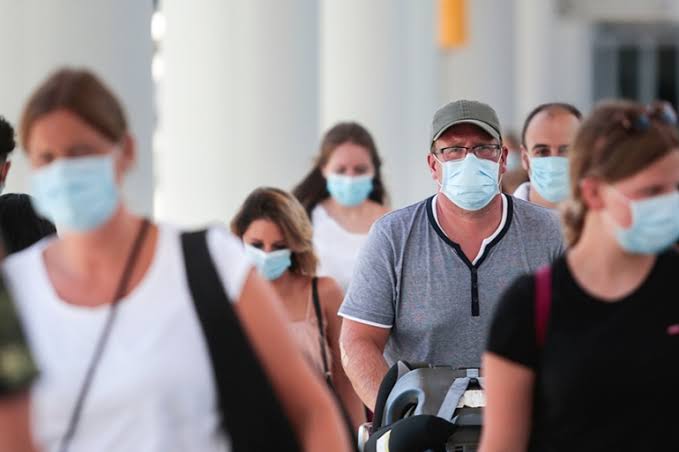The events of 2020 will long be remembered by frequent flyers and the global travel community as a defining chapter of the 21st century. That was the year COVID-19, a virus that swiftly crossed continents, changed daily life around the world. With what felt like the tightening grip of a boa constrictor, the pandemic forced entire populations into lockdowns, grounding flights and confining millions to their homes. The world’s busiest airports fell eerily silent, and the familiar hustle of travel was replaced by uncertainty, fear, and hope for survival. Developed economies, including the United States—the world’s largest—struggled to stay afloat in the turbulence caused by shuttered borders, plummeting consumer demand, and devastated tourism.
Tourism, aviation, and allied industries suffered severe setbacks, with substantial job losses, bankruptcies, and the near halt of global mobility. In a region like West Africa, where thousands depend on travel and hospitality for their livelihoods, the impact was equally pronounced. According to the United Nations World Tourism Organization, global tourist arrivals declined by 74% in 2020, and Africa saw a significant plunge in visitor numbers and revenue. For many, it felt as if the world itself had hit the pause button—a surreal moment where the dream of international travel seemed impossible, replaced by the cautious wisdom that protecting one’s health was paramount.
Personally, for the first time in many years, my tradition of an annual vacation abroad was completely disrupted. My plans were upended, and like many Nigerians and West Africans used to jetting off for leisure or business, I was forced to adapt to a new reality. I once shared online my view that, “COVID-19 is here to stay… The only solution is to confront it with the right preventive measures alongside faith and resilience.” That belief, common in many Nigerian circles, reflects the balance many found between health protocols and spiritual determination.
Did these prayers have an effect? As a Christian and a member of the Church of Nigeria Anglican Communion, I hold firm to my conviction that collective prayers provided strength for many facing the pandemic’s uncertainty. Still, there is ongoing debate about the impact of spiritual interventions versus scientific solutions—a discussion that continues to echo in households and places of worship across the continent.
Returning to the realities on ground, transportation—especially air travel—remained one of the hardest-hit sectors. In 2020, flights were cancelled or indefinitely postponed, and major airlines globally recorded losses. Just as some relief seemed likely in 2021, new COVID-19 variants such as the Delta variant reignited concerns and reignited discussions of renewed lockdowns. Multiple governments, including those in the West and Africa, considered reinstating travel restrictions. Nigeria, despite limited comprehensive data on COVID-19 infections, announced its readiness to follow countries like the UK, Germany, and India in preparing for another shutdown. However, vocal local experts and public commentators in Nigeria challenged this approach, arguing that what worked in Europe or Asia would not fit Nigeria’s unique realities—insisting instead on homegrown strategies suited to local challenges.
Surprisingly, even as the world braced for new waves, Nigeria’s reported infection statistics began to drop considerably. According to the Nigeria Centre for Disease Control (NCDC), most states recorded fewer daily cases, although concerns lingered in high-traffic areas like Lagos. Experts in Lagos attributed occasional spikes to insufficient screening of travellers arriving from countries where variants like Delta were circulating. Still, with the global rollout of vaccines—including in Nigeria and Ghana—societies began to cautiously re-emerge from lockdown. Most international travel resumed, albeit under strictly enforced protocols.
With movement resuming, I, like many who had become cautious flyers, needed to travel again—this time compelled by urgent family matters. Stepping back into the world of international travel, however, revealed new hurdles that all intending travellers must navigate: vaccination requirements, COVID-19 testing 72 hours prior to departure, and ever-changing airline policies. It wasn’t just about booking a seat anymore; it was about navigating a web of rules, forms, and certificates.
Nigeria’s unique dynamics came into sharper relief during this process. At public hospitals, where COVID-19 tests were nominally affordable, results reportedly took up to two weeks—a timeframe impractical for international travel. Private testing centres offered same-day results for a steep fee, often up to N40,000. According to sources, some of these private operators allegedly colluded with certain officials, turning what should be a public health service into a profitable venture for a privileged few. Such issues highlight Nigeria’s ongoing struggle with equitable access and service delivery—a challenge echoed in many parts of Africa.
After the lengthy preparations, I faced another common dilemma: choosing an airline. Flights passing through Europe demanded not just vaccination but additional layers of compliance, and reservations often became void if requirements were not met. Ultimately, I secured a spot on Ethiopian Airlines, although at sharply increased fares reflecting pent-up demand and reduced flight capacity. On the test day, I joined a long line of fellow travellers at a Lagos centre—many anxious about whether their results would disrupt their journeys. According to Lagos-based travel consultant Mrs. Olamide Fakoya, “The pressure on test centres has never been higher, and the inconsistency in process undermines confidence in travel protocols.” Transparency issues and conjectures about favoritism in clearing results fueled public skepticism—a sentiment not unique to Nigeria but palpable across West Africa.
The flight itself marked a visible return to almost-normal: crowded cabins, bustling terminals, and the sense of anticipation that comes with international journeys. The Addis Ababa to Washington segment was full, showing that despite lingering fears, people were eager to reconnect with loved ones or seize postponed opportunities. The journey, including layovers and connecting flights, stretched nearly 30 hours—a reminder of the logistical and emotional stress tied to pandemic-era travel.
Revived Airports, New Realities
A notable highlight was witnessing the vibrant, if cautious, activity at major hubs like Abuja, Lagos, Addis Ababa, Dublin, and Dulles. By late 2021, many countries—especially the United States—had eased certain restrictions. American airports, for example, buzzed with travelers taking advantage of drive-through COVID-19 test centres, many of which were free and returned rapid results. This approach enabled more Americans to reclaim pre-pandemic routines, yet strict vaccine mandates remained for both citizens and visitors. Public health stations, informative signage, and mask requirements remained ubiquitous, reflecting a system-wide commitment to minimizing risk while facilitating mobility.
In the U.S., the question of mandatory masks became highly politicized, particularly in Republican-leaning states where opposition to federal mandates reportedly led to avoidable outbreaks, as noted by CNN and other major outlets. Some Republican leaders and supporters, resisting President Joe Biden’s policies, later suffered severe consequences after contracting the virus. For airlines, however, compliance was compulsory: masks were required throughout the duration of flights, and non-compliance meant removal from the aircraft. This strict adherence to safety protocols, contrasted with some regions in Africa where enforcement varied, suggested the critical role of consistent messaging and credible enforcement.
Lessons for Nigeria and Africa: Moving Forward
Over the following weeks, I travelled through multiple U.S. cities—Houston, Atlanta, California, Maryland, and Ohio. As fears about new variants intensified, the U.S. government enforced fresh rules mandating masks in schools, public places, and at home in some states. Yet many Americans viewed these measures with skepticism, arguing that prolonged restrictions could not become the norm. According to Dr. Ifeanyi Nwaneri, a public health analyst in Lagos, “This shows how societies must strike a balance between reasonable caution and getting on with life. We can’t close down forever, but complacency costs lives.”
Back home in Nigeria and West Africa, the lesson is clear: While people are eager to return to the skies and rediscover the world, there is no room for shortcuts or complacency. Variants—be it Delta or future strains—mean that health protocols must evolve, and both travelers and authorities need to maintain vigilant adherence to guidelines. Travelers leaving Nigeria are typically required to present negative COVID-19 test results, CDC clearance, and vaccination proof as part of pre-boarding checks—a trend likely to continue as the global community adapts to a new way of living and moving.
The sight of packed flights, bustling terminals, and reconnecting families underscores a powerful truth: the joy of travel and the gift of life are more cherished than ever. Humanity is slowly reclaiming its sense of possibility, finding hope in the innovations of science and the resilience of communities. The world may have changed, but the spirit to overcome remains undimmed.
As West Africans, we owe gratitude to scientists and health workers who continue to push the boundaries of knowledge to protect us all. The journey isn’t over, but progress is visible—and it’s a testament to what can happen when societies work together, guided by both local insight and global expertise.
What was your experience with travel during the pandemic? Do you think Nigeria and West Africa have found the right balance between safety and mobility? Drop your thoughts below and follow us for more insightful stories and updates!
Have a journey story, tip, or news you want to share or sell? We’d love to hear from you! Email us at story@nowahalazone.com to get your story featured or discuss story sales.
For general support, reach out at support@nowahalazone.com.
Follow us on Facebook, X (Twitter), and Instagram for more travel news, community voices, and local updates!










